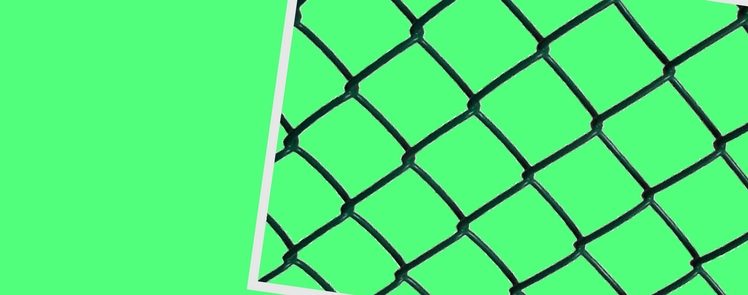
Is there a silver lining in China’s Green Fence?
We wrote an article on the BlackBridge blog recently about China’s “Green Fence” of new regulatory policies related to imports of scrap plastic material, and how many U.S.-based scrap plastic trading companies are struggling with delays and backlogs related to China’s increased scrutiny of imported plastic scrap. But is it possible that China’s Green Fence might also offer new opportunities for U.S.-based plastic recyclers?
According to this article in Waste Recycling News, China’s Green Fence policies are being welcomed by some U.S. plastic recycling companies.
Anyone in the scrap plastic trade knows that China is the world’s largest (and until recently, fastest growing) markets for scrap plastic. But in February 2013, China started cracking down on imports of recycled plastic, with the goal of trying to avoid dumping of low-grade plastic scrap and minimize contamination of scrap plastic bales.
Between February and April, 55 scrap plastic shipments were halted in Chinese ports, resulting in 7,600 tons of recyclable materials being rejected or sent back to suppliers.
According to the Waste Recycling News article, the Chinese Green Fence policy is resulting in delays, reduction in scrap plastic trading with Chinese companies, and confusion as many U.S.-based scrap plastic dealers aren’t sure which rules apply to their shipments. For example, some U.S. scrap plastic traders are trying to better understand what is an acceptable level of contamination, or whether they can ship mixed bales that might have a trace amount of contamination.
Although some U.S. municipalities are having trouble shipping some of their lower grade plastic collected in the recycling stream, other U.S. plastics recyclers are seeing the Green Fence as a “leveling of the playing field.”
For example, with China taking a harder look at contaminated loads of scrap plastic, or lower grades of scrap materials, this opens up opportunities for scrap plastic recyclers that have invested in pollution control and other features to deliver a higher grade of plastic scrap material.
Mike Biddle, president of MBA Polymers, was quoted as saying that “Legitimate recyclers applaud the move,” by China to enact stricter enforcement of scrap plastic importation standards. Biddle said that his company has wanted something like the Green Fence policies to happen, because “It levels the playing field. We’ve been operating more costly recycling facilities for years.”
Here are a few trends that seem to be shaping up from China’s Green Fence:
U.S. recyclers need to raise their game: China is enacting more stringent standards on plastic scrap imports. While this may be a temporary situation and the Chinese government will allow people to go back to “business as usual,” smart scrap plastic traders should plan for the possibility that this is the “new normal” in the scrap plastic export business. Be prepared to increase your due diligence with suppliers prior to making trades with Chinese counterparties. Low-grade plastic scrap and contaminated bales are not going to get an easy pass in the current realities of China’s scrap plastic industry.
Look for domestic opportunities: With the uncertainty related to China’s shifting policies, some U.S. recycling firms are looking for opportunities to do all of their plastic recycling within the U.S. For example, according to Waste Recycling News, Intercontinental Export-Import (based in Columbia, Maryland) has been doing 72% of its business in exports, and 28% in domestic value-added recycling. Now in response to China’s Green Fence and some other industry trends, the firm is looking to reverse those ratios – so that it would do the large majority of its business in the U.S.
There’s an old saying that in the Chinese language, the word “crisis” is the same as the word for “opportunity.” This is appropriate – many U.S. scrap plastic traders might think of China’s Green Fence as a “crisis,” but if you respond with innovation and agility, this latest development could be just another opportunity to do business better and more profitably than before.
What are your thoughts on the China “Green Fence?” Have you had any Chinese trading partners affected by the new regulations? How can you decide whether/how aggressively to pursue trading opportunities?




